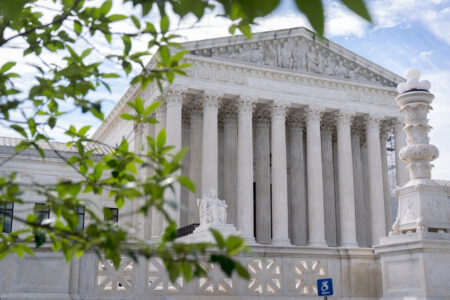West Virginia House passes bill keeping natural gas property tax formula in place

(Capitol Notes - Graphic Illustration/MetroCreative)
CHARLESTON — A delegate from a county hit hardest by a mistake last year by the West Virginia Tax Division accuses state tax officials of “negligence” during debate on a bill to remove a deadline that would keep a controversial natural gas property tax valuation formula in place. The House passed House Bill 4850 in a 71-25 vote Monday, with a bipartisan group of lawmakers from eight natural gas producing counties opposing the bill. It now heads to the state Senate where a similar bill — Senate Bill 395 — was moved to the Senate Rules Committee earlier that same day. Both bills would remove a sunset provision for a formula to determine the value of personal property that produces oil, natural gas and natural gas liquids. But implementation of that formula by the state Tax Division has been plagued by issues since 2022, including a mistake that caused eight natural gas-producing counties to be shorted by more than $30 million in tax collections. “The story was ‘whatever you do, don’t say it was the mistake,'” said House Judiciary Committee Vice Chairman David Kelly, R-Tyler. “Well, ladies and gentlemen, what else can it be but a mistake? And at that point, it was more than a mistake. It was negligence.” House Bill 4336, passed by the Legislature in 2022, requires the state Tax Division to calculate oil and natural gas property valuations using an income-based approach based on what the value of the interest would be if sold at market value. But this new formula has a sunset of July 1, 2025, requiring the Legislature to either keep the new formula in place or develop a new formula by that deadline. “The current methodology would not change,” said House Finance Committee Chairman Vernon Criss, R-Wood. “The bill merely makes the prior changes permanent. A failure to act will lead to the oil and gas portion of the statute becoming unenforceable.” The formula takes into account several factors, including whether a well is horizontal or vertical, the geographic location of the well, whether the well is located in certain shale regions and the age of the well. While the previous formula looked back using a three-year average, the new formula looks back over only the previous tax year. The Tax Division once could lump in multiple wells together to determine an assessed value, but tax officials must now appraise individual wells. The new formula was in response to a 2019 decision by the West Virginia Supreme Court of Appeals that ruled that the previous way the Tax Division determined the value of natural gas-producing property violated the state Constitution. House Bill 2581, passed in 2021, was the Legislature’s first attempt to develop a new natural gas property tax valuation formula, but a disagreement with the Tax Division’s interpretation of the new formula led to HB 4336. The implementation of the new formula by the Tax Division at the end of 2022 and into 2023 has been wracked by problems: delays in providing counties with valuation numbers, understaffing within the Tax Division, incorrect appraisal value numbers causing trigger letters going out to taxpayers causing confusion and anger, and a backlog in tax assessment appeals at the state level. In a new wrinkle, the Tax Division informed county assessors in eight counties in the Ohio Valley and North Central West Virginia late last year that a “clerical error” by a third-party vendor in calculating the new formula for natural gas property tax valuations caused newly producing natural gas wells to be undervalued by approximately $30 million. The mistake was found in March 2023, but counties were not informed until September 2023 – seven months later. Tyler County’s sum total tax impact from the undervalue mistake by the Tax Division was $15.8 million, followed by Marshall County with $5.3 million, Brooke County with $4.4 million, Monongalia and Wetzel counties with $1.6 million each, Doddridge County with more than $1 million, Harrison County with $275,879, and Pleasants County with $110,277. “We are faced in Tyler County with a $15.8 million error made by the (Tax Division),” Kelly said. “It was not made by the local assessor. It was not made by the county commissions. This error was from the (Tax Division) and it includes all the oil and gas counties in the state.” “I cannot and I will not vote to enshrine a process that we know there’s been problems with and that we know hasn’t been implemented right,” said Del. Trenton Barnhart, R-Pleasants. “We need to get the stakeholders back together, fix this process, and lessen the harm that it has already done.” The Tax Division began meeting with county commissioners in the affected counties last week, meeting with Brooke, Tyler, Harrison, and Monongalia counties. Tax officials will meet with the Marshall County Commission today at 9:30 a.m. and the Doddridge County Commission at 4:05 p.m. Pleasants County’s hearing is Wednesday, Feb. 21, at 10 a.m.;, and Wetzel County’s hearing is Tuesday, Feb. 27, at 10 a.m. Criss acknowledged the mistakes made by the Tax Division in implementing the will of the Legislature with the new formula, but said the 2019 ruling by the state Supreme Court ties their hands on how much they can tweak the formula and not run afoul of a future ruling throwing out the formula by the high court. “The (Tax Division) hired a contractor that simply went in and made math errors,” Criss said. “Yes, it’s unfortunate, I understand that. But that has nothing to do with what we’re trying to do here. We want to keep the methodology as the Supreme Court has dictated to us that each well will be assessed individually.” A public hearing on HB 4850 was held last week, with business and natural gas industry officials supporting the removal of the sunset provision. Wetzel County Assessor Scott Lemley urged either rejecting the bill or amending it to extend the sunset deadline, and two royalty owners urged lawmakers to amend the bill to require royalty interests be appraised at fair market value or not to exceed the sales value of similar royalty interests that are sold. The state Senate moved its version of the bill – Senate Bill 395 – to the Senate Rules Committee and off of its active calendar. Steven Allen Adams can be reached at sadams@newsandsentinel.com





